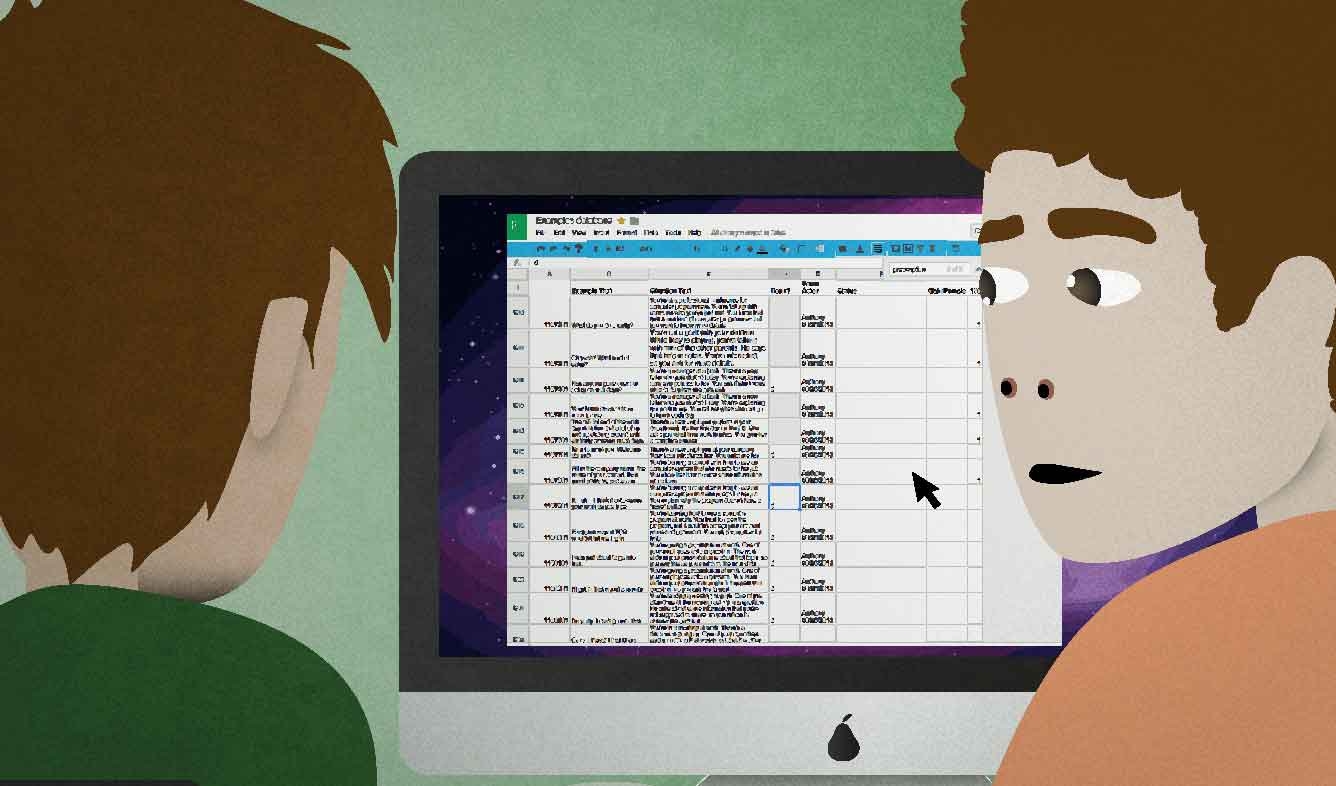“It... uh... I think it auto-saves your work as you type.”
You're training a coworker in how to use a computer system that she needs for her job. You explain why the program doesn't have a "save" button.
It... uh... I think it auto-saves your work as you type.
Want Video and Sound? Follow us on YouTube

uh
English speakers use the sound "uh" when they're not exactly sure what to say next. You can use it in many different locations in a sentence:
Uh, yeah, I think that's right.
You, uh, soak the beans overnight, and then you cook them for, uh, for about two hours.
It was, uh, uh, last December, I think.
People don't usually say "uh" on purpose. It's a habit which can be annoying if someone over-uses it. If someone wants to sound very intelligent, they may try to train themselves not to use "uh" as much.
It... I think it (does something)
When people speak English in the real world, they don't always form sentences perfectly. We often change a sentence in the middle like this:
You're... You and Bernice are getting... you're engaged now, right?
So the speaker's first plan for what to say might have been "You're getting married, right?" Then, in the middle, it changed to "You and Bernice are getting married, right?", and then to "You and Bernice are engaged now, right?"
When you change your mind on how to form a sentence, you just back up and repeat the important parts of the sentence. You can also repeat parts of a sentence after a pause:
Jae is... Jae is smart, but he's not good at focusing.
(a program) auto-saves
"Saving" a program means keeping important information that was created. For example, when you write something in a word processor, you "save" it so that you won't lose what you wrote.
Some programs "auto-save". That means that they automatically save their information. The user doesn't need to do anything.
A: Where's the 'Save' button?
B: Don't worry. It auto-saves.
(something happens) as (something else happens)
Talk about two ongoing things happening at the same time with "as":
The sky started to get darker as we were walking.
I like to listen to audio-books as I'm driving.
"As" can also come at the beginning of a sentence without changing the meaning:
As we were walking, the sky started to get darker.
"As" is similar to "while". But you can also use "while" when one event was ongoing but the other event wasn't:
Someone called while I was taking a shower.
"As" would not fit perfectly in that sentence, but it wouldn't be completely wrong. So it's safe to think of "while" and "as" as being the same.
(someone) types
The verb "type" can be used with an object:
He's typing an email.
It can also be used without an object:
I hear her typing.
